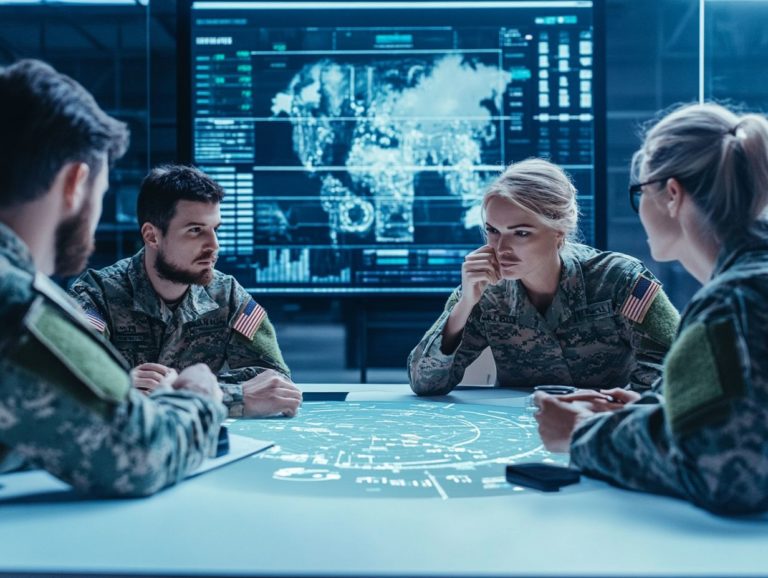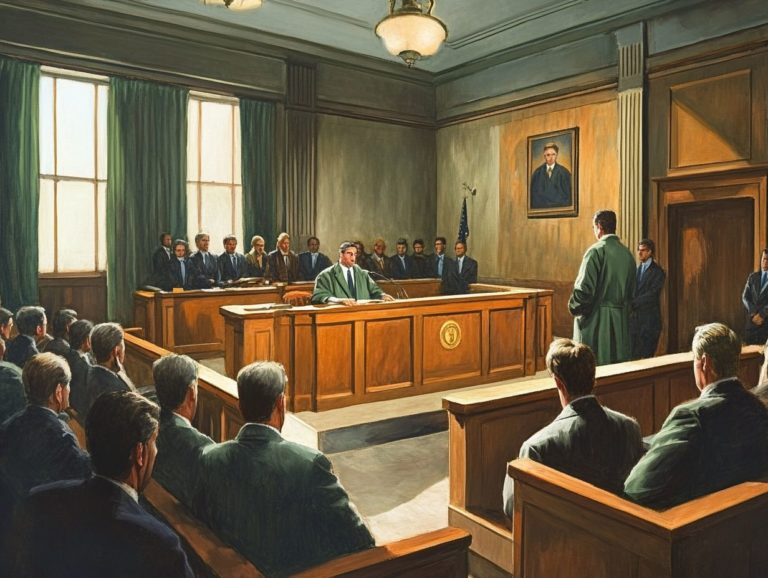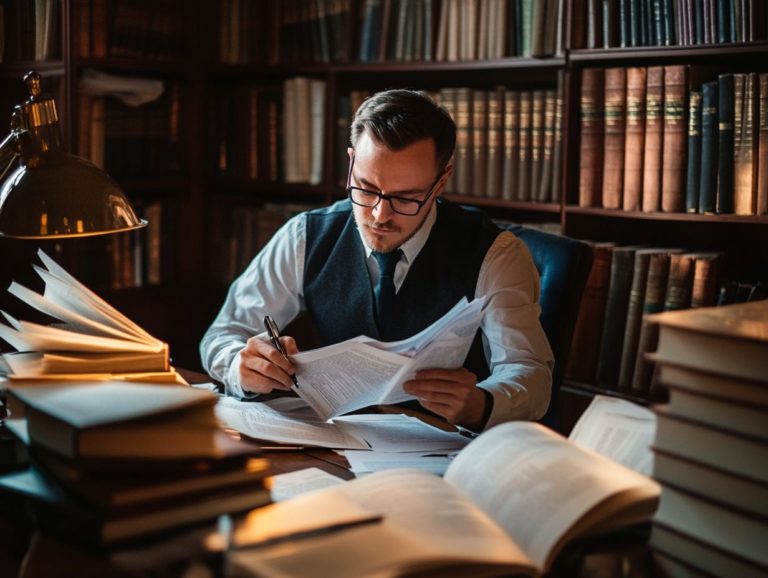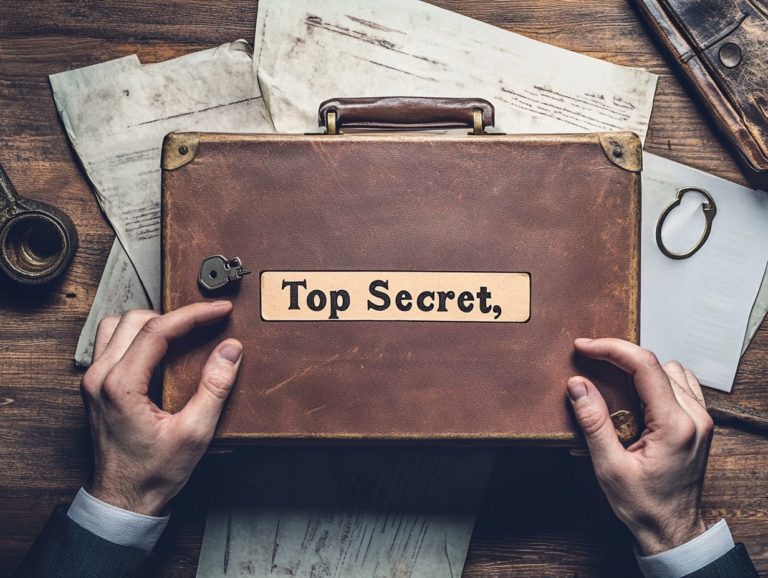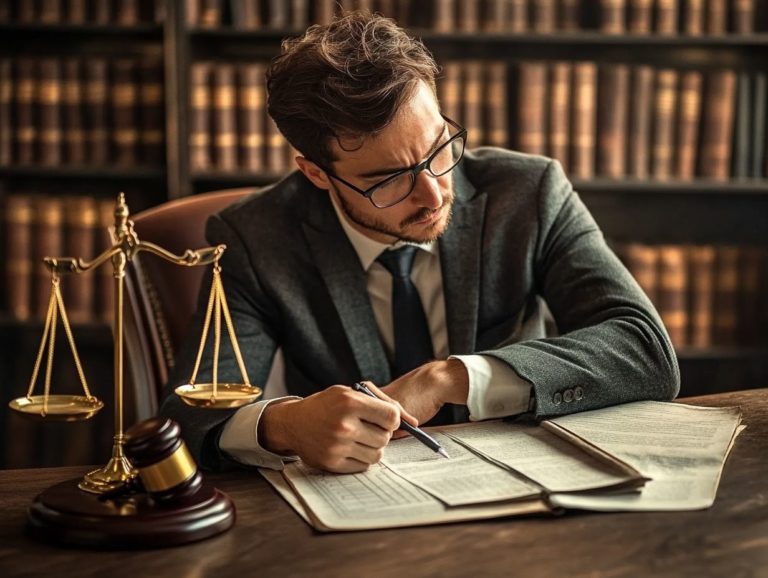How to Use Expert Testimony Effectively
In the intricate realm of legal proceedings, expert testimony can truly transform the trajectory of a case. Grasping its definition and purpose is vital. Selecting the appropriate expert witness and preparing thoroughly are steps that can significantly influence your success in court.
This article is your guide to navigating the essential facets of working with expert testimony from identifying qualified professionals to presenting their insights in a compelling manner.
This guide also covers strategies for challenging opposing testimonies and harnessing expert opinions across a variety of case types. Immerse yourself in this guide to elevate your legal strategy and fortify your approach.
Contents
Key Takeaways:
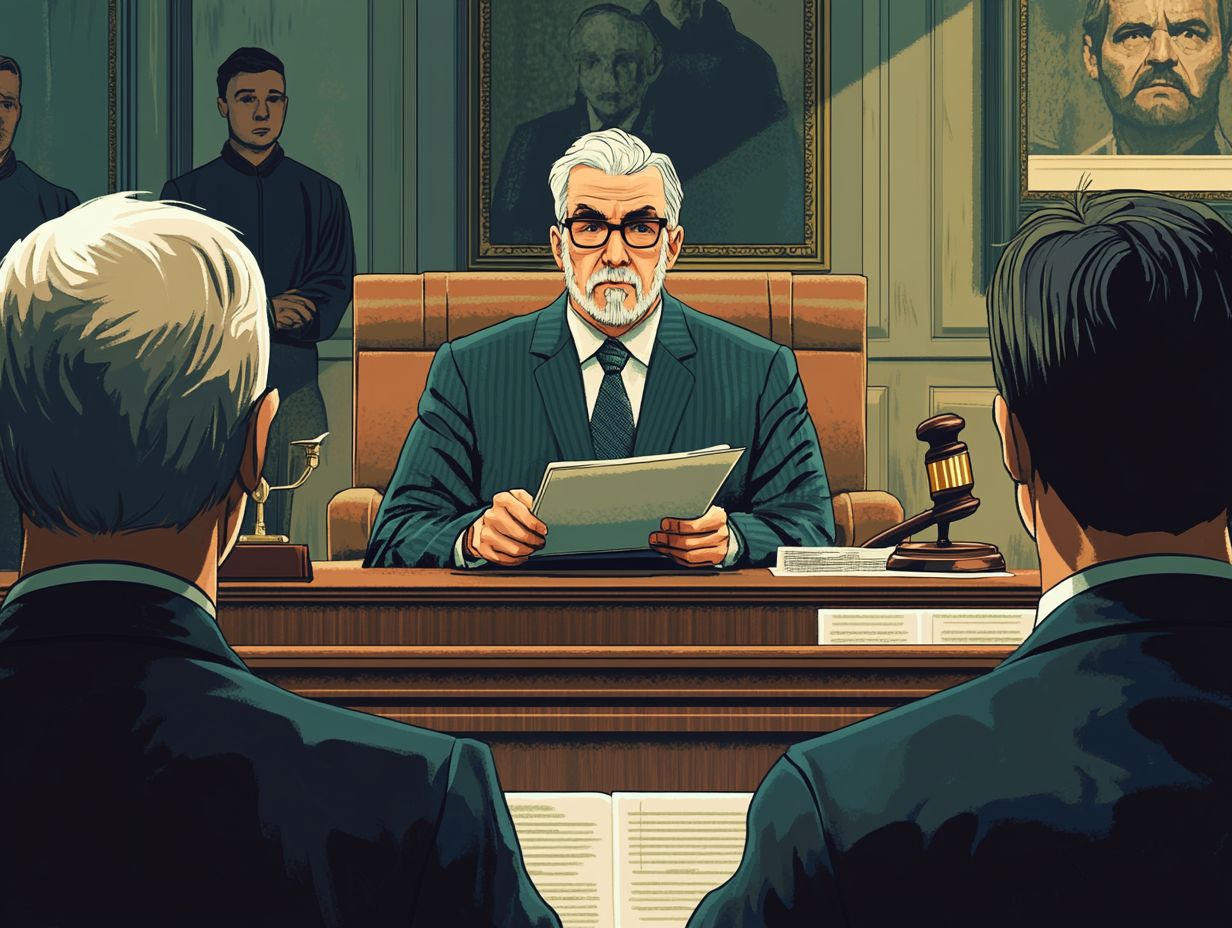
Expert testimony is defined as the use of specialized knowledge and expertise to provide evidence in a legal case. It is important to carefully select an expert witness with the right qualifications and specializations to ensure credibility and effectiveness.
Effective preparation for expert testimony involves gathering relevant evidence and information to support the expert’s opinions. It also requires effective communication and presentation techniques to convey complex information to the court.
When challenging expert testimony, it is important to have a clear strategy for cross-examination. This may include questioning the expert’s qualifications, methodology, and biases to weaken their testimony.
Understanding Expert Testimony
Expert testimony plays an important role in the legal landscape. It offers specialized knowledge that aids the court in grasping the details of evidence and legal language.
An expert witness is a qualified individual whose insights can clarify essential facets of a case, significantly influencing the trial’s outcome.
The Federal Rules of Evidence regulate the admissibility of such testimony, ensuring that only credible and relevant expert opinions contribute to the jury’s understanding within the courtroom.
In the realm of litigation, utilizing expert testimony effectively can tackle credibility challenges and strengthen case theories. This ultimately leads to more compelling trial strategies.
Definition and Purpose
The essence of expert testimony lies in its ability to convey specialized knowledge that aids you, the juror, in navigating the complexities of evidence. This type of testimony plays an important role in unraveling intricate details that might otherwise leave you puzzled.
By incorporating expert insights, you can make well-informed decisions as you wade through technical matters, enhancing the overall reliability of the evidence presented. Expert opinions lend substantial support to the case theory by offering credible backing that connects specific facts to broader legal principles.
When utilized effectively, expert witnesses not only fortify arguments but also influence how you interpret information. This ultimately shapes your perceptions and judgments regarding the case at hand.
Selecting the Right Expert Witness
Selecting the right expert witness is a pivotal element of trial preparation. It significantly impacts the efficacy of expert testimony in court. You need an expert who possesses specialized knowledge and the ability to convey intricate concepts in accessible language.
Their qualifications and areas of expertise should seamlessly align with your case theory, allowing them to deliver credible and compelling testimony that can endure rigorous cross-examination. Grasping the nuances of expert analysis and the intricacies of expert selection is essential for devising successful legal strategies.
Qualifications and Specializations
The qualifications and specializations of an expert witness are vital for establishing credibility. This ensures their contributions to a trial are relevant and reliable.
A well-rounded expert typically holds advanced degrees, has extensive professional experience, and boasts a track record of published research. They may focus on areas ranging from forensic science to financial analysis, highlighting the diverse expertise required.
The implications of an expert’s evaluation can significantly influence courtroom outcomes. Juries often rely on their insights to navigate complex evidence. It’s essential to align an expert’s background with the intricacies of the case, as a mismatch could weaken the perceived validity of their testimony.
Preparing for Expert Testimony
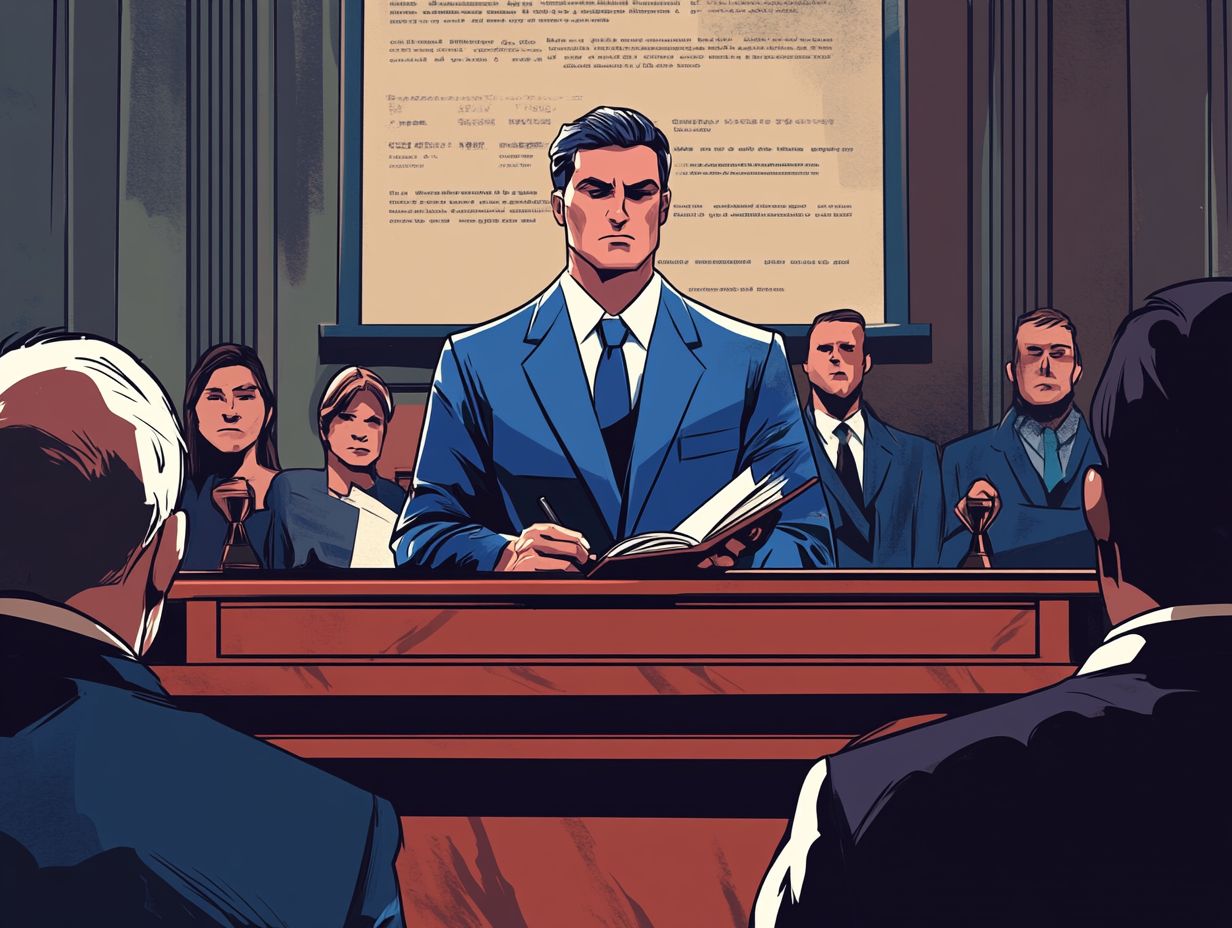
Preparing for expert testimony requires meticulous trial preparation. Gathering evidence and information is crucial for enhancing your effectiveness in court.
This process involves gathering factual evidence and developing communication strategies that resonate with the jury. Articulating complex ideas in everyday language fosters an emotional connection and ensures the jury understands your insights.
Understanding courtroom dynamics is vital. It influences how you present your analysis and interact with the litigation team, shaping your testimony’s impact.
Gathering Evidence and Information
Gathering evidence and information is a crucial step in preparing for expert testimony. This establishes the reliability and credibility of your analysis.
When preparing for trial, hone in on factual evidence that aligns with your insights. Meticulously examine various sources, like peer-reviewed journals and case studies, ensuring they’re current and widely respected.
Judges and juries need compelling evidence that resonates with their understanding of the subject matter. Weaving robust evidence into your testimony can significantly shape courtroom dynamics.
Presenting Expert Testimony in Court
Presenting expert testimony in court demands effective communication and presentation skills. Both are crucial for enabling the jury to grasp complex ideas.
Your engagement with the court shapes the jury’s understanding and perceptions. Adapting your language and demeanor to suit the audience is essential.
To excel, be well-versed in communication strategies that enhance clarity and persuasiveness in your testimony.
Effective Communication and Presentation Techniques
Effective communication and presentation techniques are essential for conveying your insights clearly and persuasively. Prioritize clarity by simplifying complex ideas.
Engagement is vital; using interactive techniques, such as asking rhetorical questions, fosters a connection between you and the jury. This makes your testimony more relatable and impactful.
Establishing an emotional connection through anecdotes and real-life examples can enhance the jury’s understanding. Specific presentation skills, like maintaining eye contact and using appropriate body language, bolster your credibility.
Challenging Expert Testimony
Challenging expert testimony is a key component of your trial strategy. Cross-examination is a powerful tool to assess an expert’s credibility and the soundness of their opinions.
Engaging in effective cross-examination uncovers weaknesses in the expert’s analysis and questions their qualifications. This can significantly impact how the jury perceives the case.
Craft your legal strategies skillfully to make every moment count in court. Ensure your assessment of credibility resonates with the jury for a comprehensive evaluation of the expert s role.
Ready to make your expert testimony shine? Start preparing today!
Strategies for Cross-Examination
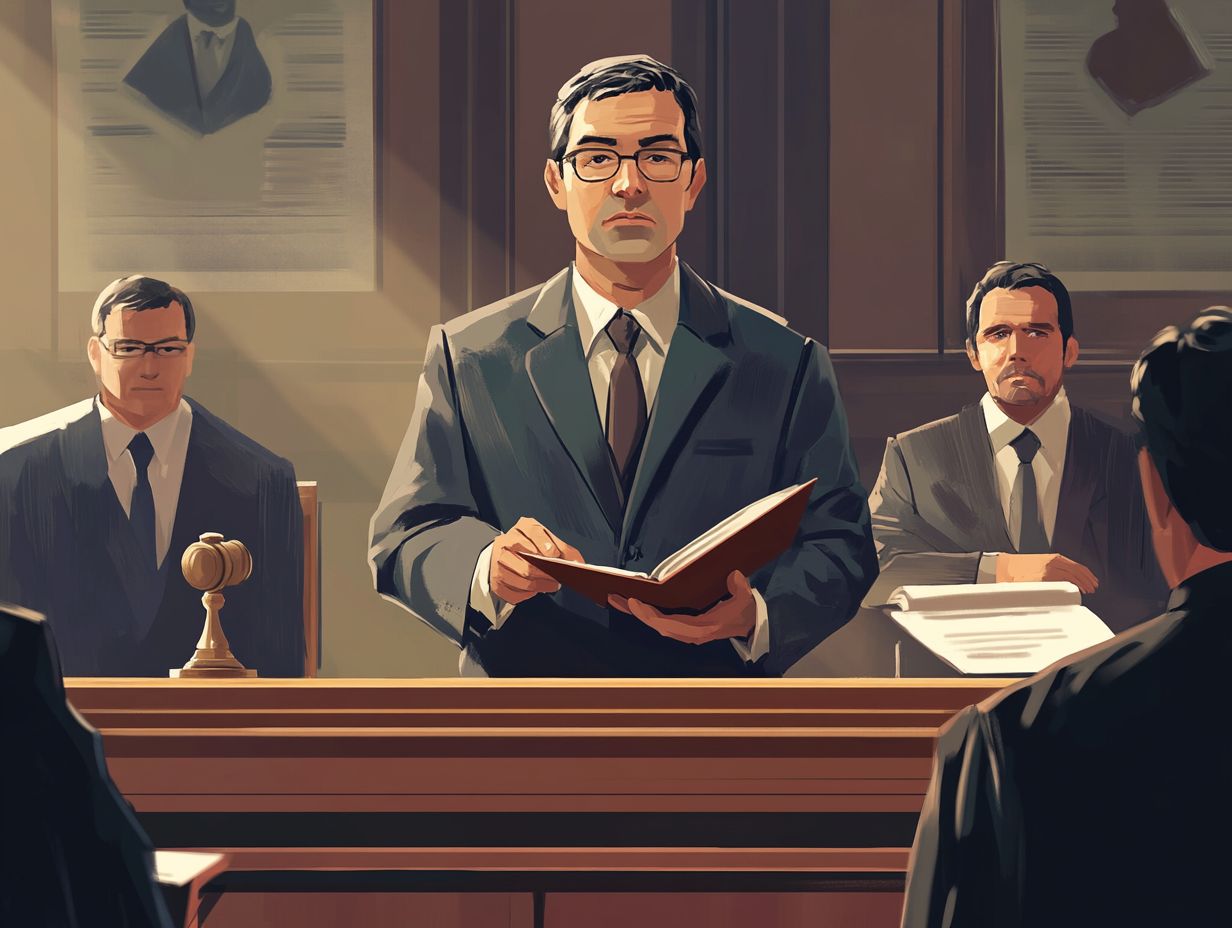
Strategies for cross-examination are crucial for legal professionals, especially when questioning expert witnesses and challenging their testimony.
By employing a range of approaches, you can carefully dissect the foundation of an expert’s qualifications. Focus on their educational background, experience, and any potential biases they may hold.
Highlighting inconsistencies in their statements or drawing attention to their reliance on unverified data can spotlight credibility issues. Your trial strategy will play a pivotal role in navigating these interactions, allowing you to adapt techniques based on the expert’s responses.
Engaging in suggestive questioning or methodically breaking down complex terminology can instill doubt in jurors minds, influencing their perception of the evidence presented and ultimately impacting the outcome of your case.
Using Expert Testimony in Different Types of Cases
Effectively utilizing expert testimony requires a careful strategy that varies across case types, offering tailored insights that can profoundly impact trial outcomes. Understanding why expert witnesses matter in your defense is crucial in this process.
In civil cases, for instance, expert witnesses often focus on medical opinions or economic forecasts. In contrast, criminal cases shift the spotlight to forensic science and psychological evaluations.
Grasping the intricacies of how expert insights shape case studies is essential for refining legal strategies and enhancing the effectiveness of testimony in court.
Examples and Case Studies
Examples and case studies offer invaluable insights into how expert testimony plays a role in legal proceedings and significantly impacts trial outcomes.
Take, for instance, the landmark case of Daubert v. Merrell Dow Pharmaceuticals, where the admissibility of scientific testimony was tested. The U.S. Supreme Court established criteria to evaluate the reliability of expert evidence, emphasizing the importance of rigorous expert selection.
Another compelling example is the role of forensic experts in the O.J. Simpson trial, where their contributions notably influenced juror perceptions and decisions through the presentation of scientific evidence.
These cases teach crucial lessons that can transform your approach to expert credibility, the necessity for clear communication, and the strategic selection of witnesses to strengthen case narratives.
By applying these lessons, you can refine your future trial strategies, ensuring that expert testimony resonates effectively with juries.
Frequently Asked Questions
What is expert testimony and why is it important in a court case?
Expert testimony involves a qualified professional sharing their insights. It helps judges and juries understand complex issues, providing specialized knowledge and insight that can assist in understanding the case.
How do I choose the right expert witness for my case?
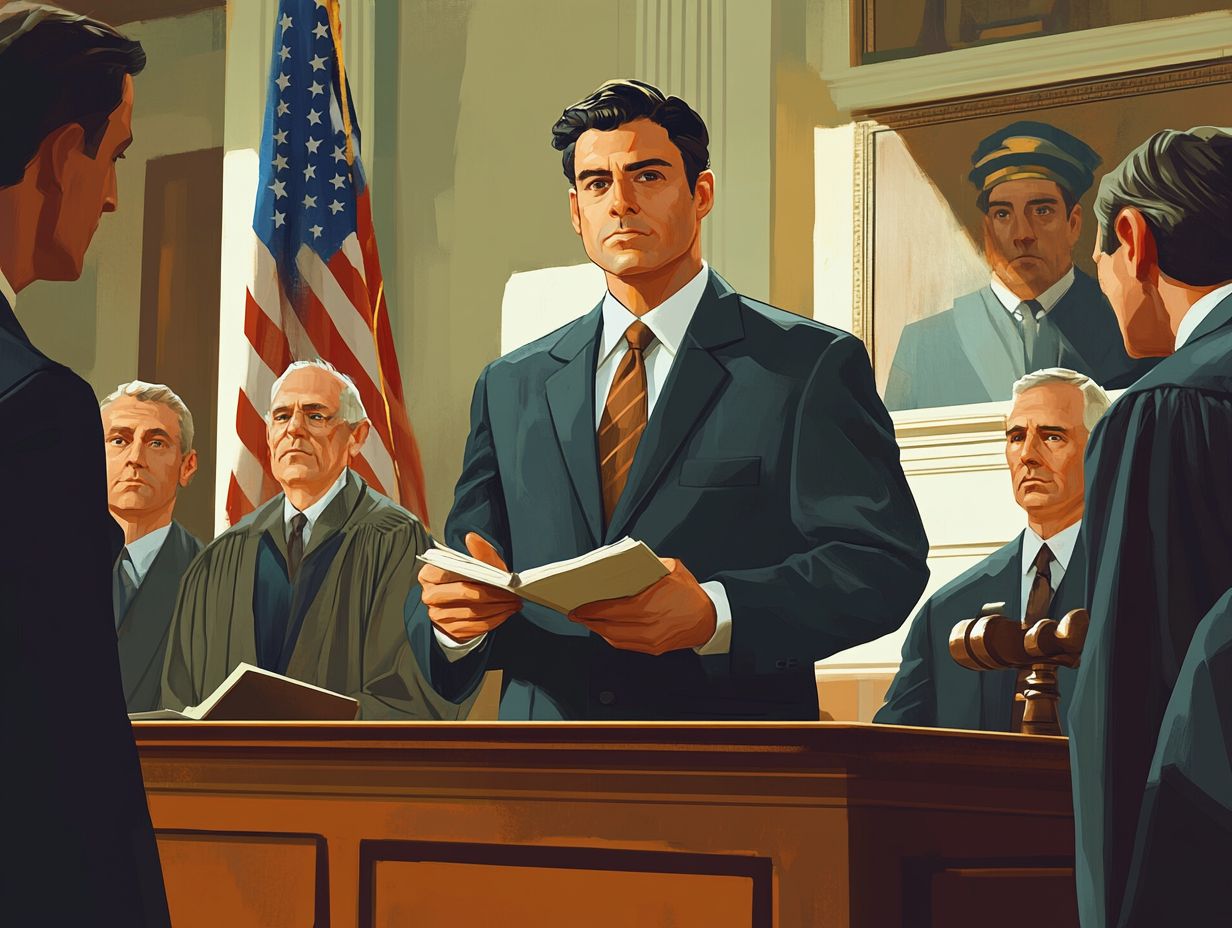
Choosing the right expert witness for your case involves careful consideration of their qualifications, experience, and expertise in the relevant field. Thoroughly research and vet potential expert witnesses to ensure they are credible and can support your case effectively.
What should be included in an expert witness’s testimony?
An expert witness’s testimony should include their qualifications, methodology for reaching their opinions, and the basis of their opinions. They should also be prepared to explain and defend their opinions under cross-examination.
How can I effectively prepare my expert witness for trial?
To effectively prepare your expert witness for trial, ensure they are thoroughly familiar with the case facts and understand their role and responsibilities. Conducting a mock cross-examination can also prepare them for potential challenges to their testimony.
Use these strategies in your next case to make a real impact!
What are some common mistakes to avoid when using expert testimony in a court case?
Common mistakes include not properly vetting the expert witness and failing to give enough background information. Also, ensure the expert is ready for questioning by the opposing side.
Can expert testimony be used in all types of court cases?
Expert testimony is valuable in many court cases, such as criminal, civil, and administrative.
However, whether it can be accepted may change based on the local laws and rules.
Avoid these mistakes to strengthen your case!

